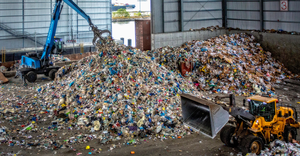ReFED Analysis Identifies Solutions to Reduce Food Waste
April 15, 2021

In 2019, across the U.S. 80 million tons of food went unsold or uneaten. Wasted food has both environmental and economic impacts. It accounts for approximately 4 percent of greenhouse gas emissions and 2 percent of U.S. gross domestic product.
The national nonprofit ReFED recently completed an analysis of the types and causes of food waste and identified more than 40 solutions to help the U.S. reach the 2030 goal of a 50 percent reduction in food waste.
For example, instead of guessing what food to stock, retailers should invest in demand-planning software to predict what they will sell. To assist, the government could offer retailers incentives that would reduce food waste and potentially drive innovation.
Read the complete story here.
You May Also Like


